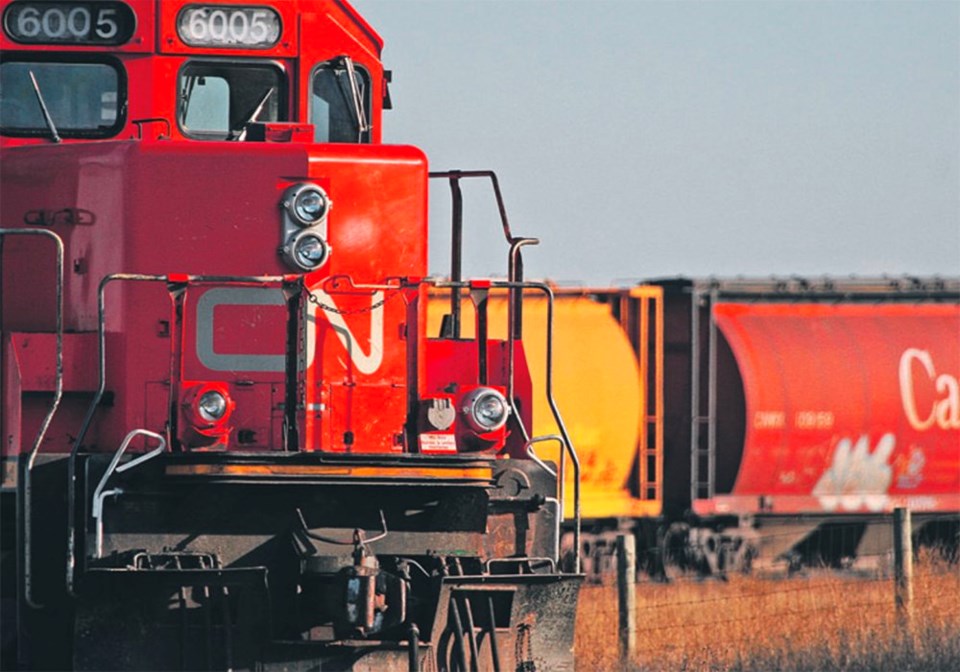Credit rating agency DBRS Morningstar is watching western 91‘≠¥¥ wildfires to see if grain movement will be affected.
In a commentary released May 17, the agency said it didn’t believe the current fires would disrupt movement too much.
91‘≠¥¥ National Railway had temporarily halted all trains on its main line between Edmonton and Jasper at the end of grain week 40, May 6. The company is taking extra precautions such as reducing train speed and spraying tracks with water after each train.
“This stoppage also impacted the movement of traffic headed to the Edson subdivision as dozens of trains in the western region were forced to wait until the danger had passed,” said CN’s week 40 report.
Traffic resumed May 8.
“CN was able to resume operations relatively quickly and the stoppage did not have a meaningful effect on grain movements, particularly given the relatively lower demand by grain handlers versus historical levels,” said the commentary. “That said, the situation remains volatile and unpredictable.”
DBRS Morningstar said the fires were unlikely to affect rail performance to the extent that the largest grain handlers’ operations would be affected and that this year’s higher number of fires than usual “represents a change in the structural level of risk we associate with exposure to rail disruptions to the sector.”
It said it doesn’t expect any credit implications for the grain companies it watches.
But the agency called it another example of the sector’s vulnerability to disruption.
In a report last October, the agency said grain handlers require adequate railway, infrastructure and customer diversification to mitigate risk.
That comes after concerns such as the British Columbia floods in 2021, blockades to protest the Coastal GasLink pipeline and the CN rail strike in 2019.
As all the major grain handlers rely heavily on CN and 91‘≠¥¥ 91‘≠¥¥ Railway, DBRS Morningstar recommended the companies diversify in terms of multiple lines and routes, spreading collection and distribution assets across the country and seeking customers that drive demand through ports on both the West Coast and Eastern Canada.
Meanwhile, in CN’s week 41 report, it said it continues to monitor the wildfires that threaten its network in Alberta and northeastern BC.



